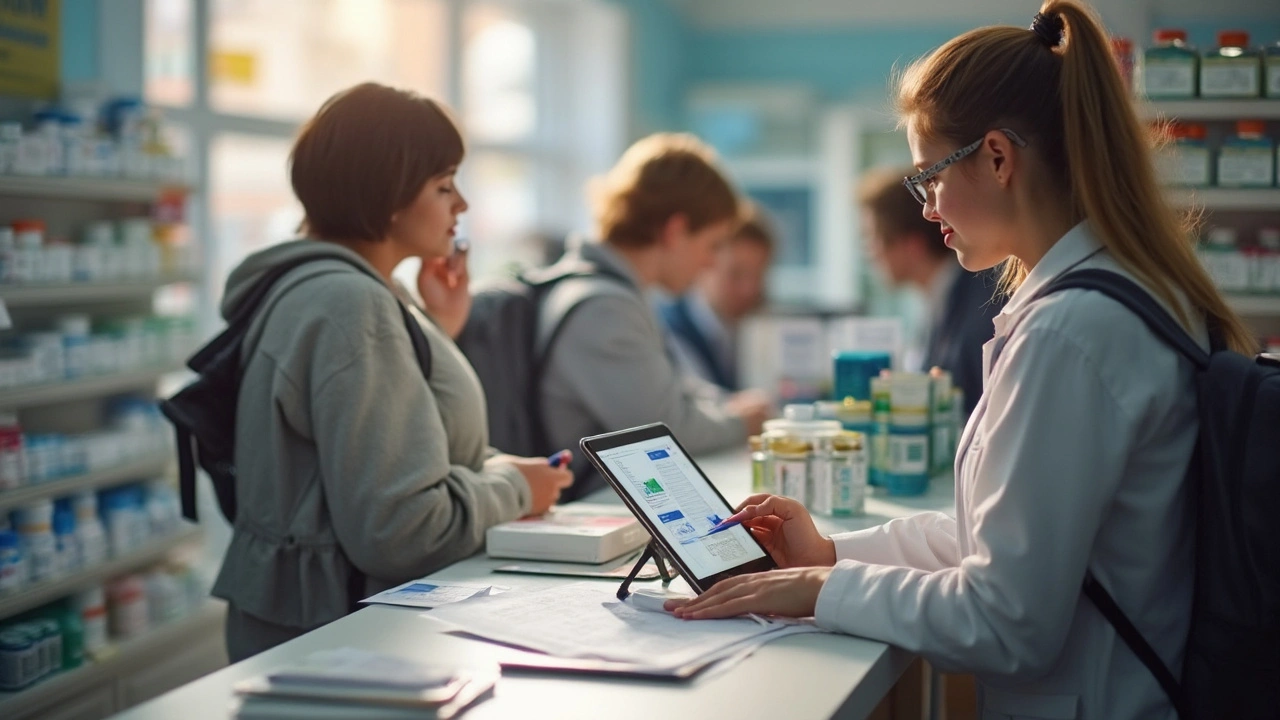Community Pharmacy: Your Local Source for Safe Medications
Community pharmacies do more than fill pills. They keep medicine safe, answer questions, and help manage treatments. If you want clear advice about prescriptions, compounding, or buying meds online, your local pharmacist is a good starting point.
Ask the pharmacist when you pick up a prescription. Ask about how to take the medicine, common side effects, interactions with other drugs or supplements, and what to watch for. If a drug needs special storage, they’ll tell you how to keep it effective. Bring a list of your current medicines so the pharmacist can spot interactions.
Many community pharmacies offer compounding services. Compounding means customizing a medication — a different dose, a liquid form, or removing an allergen. If you need a tailored option, ask whether the pharmacy compounds drugs in-house or works with a trusted compounding lab. Check credentials and ask about quality checks before you agree.
Smart Questions and Simple Steps
When you get a new medicine, ask three quick questions: Why do I need this? How and when should I take it? What should I avoid? Those answers cut confusion and reduce mistakes. Also ask about side effect monitoring and whether you need lab tests. If your treatment changes, keep the pharmacist updated.
Cost and coverage matter. Ask about generic alternatives, discounts, and patient assistance programs. Community pharmacies often help you compare prices or use coupons. If you struggle to afford a medication, speak up — they can suggest cheaper, safe alternatives or contact your prescriber for substitutions.
Buying Medication Online: Tips to Stay Safe
Online pharmacies can be convenient, but scams are real. Use only sites that require a prescription and display pharmacy contact details. Look for regulatory seals or a verifiable license. If a price looks too good to be true, it probably is. Ask how the pharmacy ships medicine and how they verify prescriptions.
For sensitive medicines, always confirm the source and storage during shipping. If you order controlled substances or complex drugs, talk to your local pharmacist first. They can help you spot fake products and advise on trusted alternatives. Keep all medication receipts and package information for reference.
Community pharmacists also support vaccine services, basic health screenings, and medication reviews. They work with doctors to resolve dosing issues and monitor side effects. Use them as a bridge between you and the healthcare system.
Finally, build a relationship. A pharmacist who knows your health story gives better advice. Call or visit when you have doubts. Small steps like asking questions and storing meds correctly make treatment safer and more effective.
If you're switching medications, bring records and recent labs to the pharmacy. Pharmacists can explain dose conversions, side effect timelines, and monitoring needs. They can contact prescribers to clarify instructions or suggest tests. Keep an updated medication list and allergy info. That simple habit prevents mistakes and speeds up problem solving when issues pop up. Ask about mail-delivery temperature controls and return policies for damaged shipments too.

- 6 Comments
Dive deep into a pharmacist’s real-world checklist for imipramine co-prescriptions. This guide walks through a practical, step-by-step protocol tailored for busy community pharmacy settings. Discover crucial facts, real tips, and smart ways to minimize the risk of harmful drug interactions with imipramine. The article highlights must-know interaction pitfalls and offers seamless screening routines that actually work on the pharmacy floor. Perfect for pharmacists who want actionable advice and confident decision-making in daily practice.
